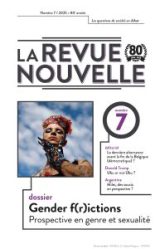George Blecher
George Blecher is a former professor at the City University of New York. He is a writer, journalist and translator. His articles appear in, among others, the New York Times, Eurozine, New Republic, Christian Science Monitor, as well as Visegrád Insight and the Danish daily Information. He is a member of the Eurozine Advisory Board.
https://www.georgeblecher.com/
Articles
President Bush’s State of the Union address reflected the current mood in the US: muted, sombre, and resigned. After four years in Iraq, Americans appear to be uniformly numb and in a shared state of confusion and despair. This new attitude is unprecedented, and suggestive of a change in the way the US may start to look at itself, writes George Blecher.
A nation like any other
Western Europe holds Israel to impossible standards
Since the conflict with Lebanon, there has been a sense among Western intellectuals that Israel has crossed some moral boundary line. But western European rhetoric holds Israel to impossible standards of perfection. Israel is behaving no better or worse than its neighbours in the Middle East, writes George Blecher.
To observers of Danish political developments, the Jyllands-Posten affair did not come out of the blue. The increasingly conservative and anti-immigrant stance taken by Fogh Rasmussen’s centre-right government and its coalition partner, the Dansk Folkeparti, along with Fogh Rasmussen’s closeness to George W. Bush, have created a political climate in which the cartoons could be published. To subsequently denounce critics of the cartoons as enemies of free expression is disingenuous, says Geoge Blecher.


